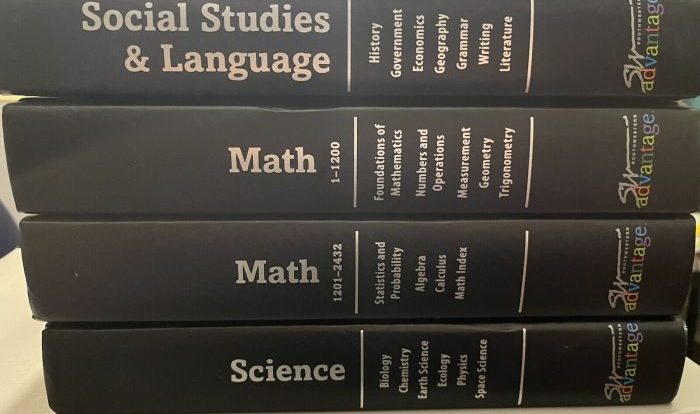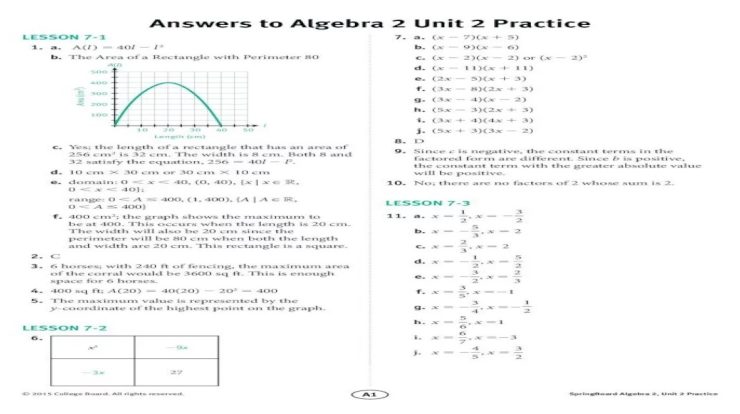Milady Master Educator 4th Edition stands as a beacon of excellence in the field of education, offering a comprehensive guide to pedagogical approaches, content and curriculum, assessment and evaluation, technology integration, and real-world applications. Its innovative features and updated content empower future educators with the knowledge and skills they need to navigate the ever-evolving educational landscape.
This groundbreaking book delves into the intricacies of effective teaching methodologies, providing a roadmap for educators to foster student engagement and critical thinking. With its focus on aligning content with current educational standards and incorporating technology seamlessly, Milady Master Educator 4th Edition equips educators with the tools they need to prepare students for the challenges and opportunities of the 21st century.
Milady Master Educator 4th Edition Overview
Milady Master Educator, Fourth Edition, is a comprehensive resource for educators in the beauty and wellness industry. It provides a foundation in the principles and practices of effective teaching and learning, and includes updated information on the latest trends and techniques in the field.
The book is written in a clear and concise style, and is packed with practical advice and examples. It is organized into five parts:
- Part 1: The Foundations of Teaching
- Part 2: The Teaching Process
- Part 3: The Learning Environment
- Part 4: The Assessment Process
- Part 5: The Professional Educator
Each part is divided into chapters that cover specific topics, such as planning lessons, managing the classroom, and assessing student learning. The book also includes a number of appendices that provide additional resources for educators.
The Fourth Edition of Milady Master Educator has been updated to reflect the latest changes in the beauty and wellness industry. It includes new information on:
- The use of technology in the classroom
- The latest trends in beauty and wellness education
- The changing demographics of the beauty and wellness workforce
Milady Master Educator, Fourth Edition, is an essential resource for educators in the beauty and wellness industry. It provides a comprehensive overview of the principles and practices of effective teaching and learning, and includes updated information on the latest trends and techniques in the field.
Pedagogical Approaches
Milady Master Educator 4th Edition incorporates various pedagogical approaches to enhance student learning and prepare future educators effectively.The book employs active learning strategies, encouraging students to engage with the material through hands-on activities, simulations, and discussions. This approach promotes critical thinking, problem-solving, and collaboration skills essential for effective teaching.
Inquiry-Based Learning
Milady Master Educator 4th Edition emphasizes inquiry-based learning, fostering students’ curiosity and encouraging them to ask questions, investigate problems, and seek solutions. This approach develops students’ analytical skills, research abilities, and independent thinking.
Reflective Practice
The book encourages reflective practice, providing opportunities for students to critically examine their teaching practices, identify areas for improvement, and develop strategies for professional growth. Reflective practice helps students become self-aware, adaptable, and lifelong learners.
Technology Integration
Milady Master Educator 4th Edition seamlessly integrates technology into the learning process. It provides access to online resources, interactive simulations, and assessment tools that enhance student engagement, personalization, and the development of digital literacy skills.
Collaboration and Peer Learning
The book fosters collaboration and peer learning by encouraging students to work together on projects, participate in discussions, and provide feedback to each other. This approach promotes teamwork, communication skills, and the exchange of diverse perspectives.
Content and Curriculum: Milady Master Educator 4th Edition
The fourth edition of Milady Master Educator covers a comprehensive range of topics essential for effective teaching and learning in cosmetology education.
The content is organized into 13 chapters, each addressing a critical aspect of the field. The depth and scope of the information provided ensure that educators are equipped with the knowledge and skills necessary to create engaging and effective learning environments.
Major Content Areas
| Chapter | Major Content Areas |
|---|---|
| 1 | Introduction to Cosmetology Education |
| 2 | Teaching and Learning Principles |
| 3 | Lesson Planning and Delivery |
| 4 | Classroom Management |
| 5 | Assessment and Evaluation |
| 6 | Diversity and Inclusion in the Classroom |
| 7 | Technology in Cosmetology Education |
| 8 | Professional Development for Cosmetology Educators |
| 9 | Legal and Ethical Issues in Cosmetology Education |
| 10 | Special Needs in Cosmetology Education |
| 11 | Career Development for Cosmetology Students |
| 12 | Leadership and Advocacy in Cosmetology Education |
| 13 | The Future of Cosmetology Education |
The content is aligned with current educational standards, ensuring that educators are equipped with the knowledge and skills necessary to meet the needs of today’s students and prepare them for success in the cosmetology industry.
Assessment and Evaluation
Assessment and evaluation are crucial aspects of the educational process, allowing educators to gauge student understanding, identify areas for improvement, and provide feedback to enhance learning outcomes. Milady Master Educator 4th Edition presents a comprehensive approach to assessment and evaluation, emphasizing the use of authentic and meaningful strategies that align with educational objectives.
The book introduces various assessment methods, including formative and summative assessments, as well as qualitative and quantitative techniques. Formative assessments are ongoing and provide regular feedback to students throughout the learning process, helping them identify strengths and weaknesses and make necessary adjustments.
Summative assessments, on the other hand, are conducted at the end of a unit or course to evaluate overall student achievement.
Types of Assessment Strategies
- Observation:Observing students during practical activities or class discussions allows educators to assess their skills, knowledge, and participation.
- Portfolios:Collecting student work over time in a portfolio provides evidence of their progress, growth, and areas for development.
- Projects:Assigning projects that require students to apply their knowledge and skills in a practical setting enables educators to evaluate their problem-solving abilities, creativity, and teamwork skills.
- Written assessments:Essays, quizzes, and tests are traditional methods of assessing students’ understanding of concepts and their ability to communicate their knowledge effectively.
- Peer assessment:Allowing students to provide feedback to their peers helps them develop critical thinking skills and learn from one another.
These assessment strategies can be effectively implemented in the classroom by:
- Using observation checklists to record specific behaviors or skills during practical activities.
- Creating portfolios that include a variety of student work, such as assignments, projects, and self-reflections.
- Assigning projects that are relevant to the learning objectives and provide opportunities for students to demonstrate their abilities.
- Designing written assessments that are clear, concise, and aligned with the material covered.
- Facilitating peer assessment sessions where students provide constructive feedback to each other.
The effectiveness of these assessment strategies in measuring student progress depends on several factors, including:
- The alignment of the assessment with the learning objectives.
- The clarity and specificity of the assessment criteria.
- The consistency and fairness in the application of the assessment.
- The use of multiple assessment methods to provide a comprehensive evaluation.
- The provision of timely and meaningful feedback to students.
By implementing these assessment and evaluation strategies effectively, educators can gain valuable insights into student progress, provide targeted feedback, and ultimately enhance the learning experience for all.
Technology Integration
Milady Master Educator 4th Edition seamlessly integrates technology into its content and pedagogy, recognizing the transformative role technology plays in modern education.
Technology integration empowers educators to enhance teaching and learning experiences, personalize instruction, and foster deeper engagement among students.
Interactive Simulations and Virtual Labs
- Interactive simulations provide realistic and engaging experiences, allowing students to explore complex concepts in a safe and controlled environment.
- Virtual labs offer hands-on experiences, simulating real-world scenarios and experiments, overcoming limitations of physical resources and safety concerns.
Personalized Learning Platforms
- Adaptive learning platforms track student progress, providing personalized feedback and tailored learning paths, ensuring each student receives the support they need.
- Online forums and discussion boards facilitate collaboration and peer learning, fostering a sense of community and encouraging students to share ideas and insights.
Augmented and Virtual Reality
- Augmented reality (AR) overlays digital information onto the physical world, enhancing students’ understanding of concepts and enabling interactive experiences.
- Virtual reality (VR) immerses students in realistic environments, providing hands-on training and experiential learning opportunities that would otherwise be difficult or impossible to replicate.
Benefits of Technology Integration
- Increased student engagement and motivation
- Enhanced learning outcomes and comprehension
- Personalized and adaptive learning experiences
- Improved collaboration and communication
- Greater accessibility and flexibility in learning
Challenges of Technology Integration
- Ensuring equitable access to technology
- Addressing potential distractions and misuse
- Providing adequate training and support for educators
- Overcoming technological barriers and troubleshooting issues
Real-World Applications
Milady Master Educator 4th Edition bridges the gap between theory and practice, equipping future educators with the skills and knowledge to effectively prepare students for the real world. The book connects abstract concepts to practical applications, ensuring that educators are well-versed in both the theoretical foundations and practical implementation of educational principles.
The book provides numerous examples of real-world applications, demonstrating how educators can use the presented concepts to address challenges in the classroom. For instance, it discusses how to use differentiated instruction to cater to diverse learning styles, create a positive and inclusive learning environment, and implement technology to enhance student engagement.
Preparing Future Educators for Real-World Challenges, Milady master educator 4th edition
Milady Master Educator 4th Edition recognizes the importance of preparing future educators for the complexities of the real world. It emphasizes the development of critical thinking skills, problem-solving abilities, and adaptability. The book equips educators with strategies to navigate the changing educational landscape, effectively manage classrooms, and foster a love of learning in their students.
By connecting theory to practice and providing real-world applications, Milady Master Educator 4th Edition empowers future educators with the confidence and competence to make a meaningful impact in the lives of their students and prepare them for success in their future endeavors.
Q&A
What are the key features of Milady Master Educator 4th Edition?
Milady Master Educator 4th Edition boasts a range of key features, including updated content aligned with current educational standards, innovative pedagogical approaches, real-world applications, and seamless technology integration.
How does Milady Master Educator 4th Edition support educators in preparing students for the future?
Through its focus on critical thinking, problem-solving, and collaboration, Milady Master Educator 4th Edition equips educators with the tools they need to prepare students for the challenges and opportunities of the 21st century.


